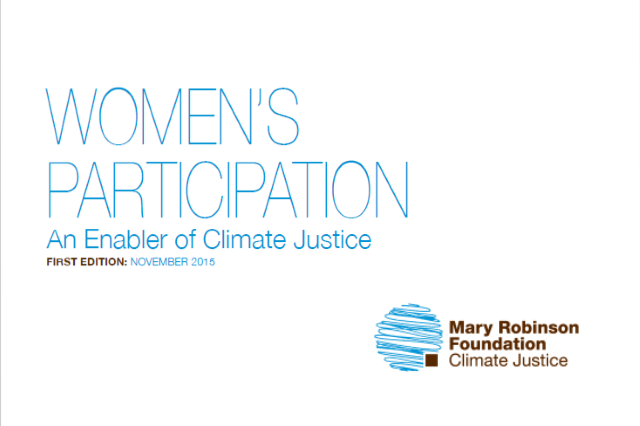Today, 8 March is International Women’s Day. The 2016 theme for International Women’s Day is “Planet 50-50 by 2030: Step It Up for Gender Equality”. The United Nations observance on 8 March will reflect on how to accelerate the 2030 Agenda, building momentum for the effective implementation of the new Sustainable Development Goals. It will equally focus on new commitments under UN Women’s Step It Up initiative, and other existing commitments on gender equality, women’s empowerment and women’s human rights.
Climate Justice is concerned with gender equality. Historically climate policy has not addressed the differing ways in which climate change affects men and women. Given existing gender inequalities and development gaps, climate change ultimately places a greater burden on women. Men and women are affected by climate change in different ways, because of the societal and cultural roles and responsibilities made on them by families and communities. For example, in many communities women are the primary food producers and providers of water and cooking fuel for their families, therefore they have greater responsibility for family and community welfare.
Understanding that climate change impacts on men and women differently, it is therefore necessary to ensure that we have gender sensitive climate policies that are informed by women and address the realities of women’s needs. Women can and are leading on climate action but they need to be better represented in climate decision making at all levels.
Women’s voices must be heard and their priorities supported as part of climate justice. They are critically aware of the importance of climate justice in contributing to the right to development being realised and can play a vital role as agents of change within their communities. Women constitute 50% of the world’s population and the majority of the world’s poor. Over 60% of the people living on less than one US dollar a day in Sub-Saharan Africa are women, and poverty increases vulnerability to the impacts of climate change. Achieving climate justice will contribute to gender equality and the empowerment of women.
Read More about the Work of the Foundation on Gender Equality and Climate Change
Policy Brief – Women’s Participation an Enabler of Climate Justice
Women’s Leadership on Gender and Climate Change
Related Links


